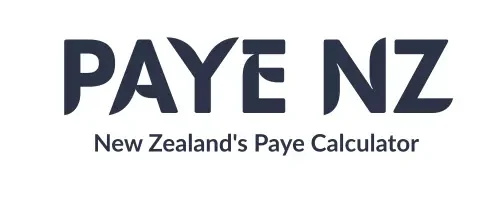Payroll Officer Salary in New Zealand
Payroll officers play a vital role in ensuring employees across New Zealand are paid accurately and on time. As payroll complexity increases with changing tax laws, KiwiSaver contributions, and leave entitlements, payroll professionals are more in demand than ever.

This article provides a complete guide to understanding the Payroll Officer Salary in New Zealand covering average pay, regional differences, career progression, job outlook, and how to get started in this career.
What Does a Payroll Officer Do?
A Payroll Officer is responsible for managing the wages, salaries, bonuses, tax deductions, and leave entitlements for employees. Their duties include:
- Processing pay runs accurately and on time
- Managing employee tax obligations (PAYE)
- Ensuring compliance with Inland Revenue (IRD) and New Zealand Employment Law
- Reconciling payroll records and reporting
- Handling KiwiSaver and ACC deductions
Related roles: Payroll Administrator, Payroll Coordinator, Remuneration Officer, Finance Officer
Payroll Officer Salary in New Zealand (2025 Overview)
Salaries for Payroll Officers in New Zealand vary by region, experience, and company size. According to data compiled from Seek, Trade Me Jobs, and recruitment firms like Hays, here’s what Payroll Officers can expect to earn in 2025:
Average Salary by Experience Level
| Experience Level | Annual Salary Range (NZD) |
|---|---|
| Entry-Level (0–2 yrs) | $50,000 – $60,000 |
| Mid-Level (3–5 yrs) | $60,000 – $70,000 |
| Senior (5+ yrs) | $70,000 – $85,000+ |
Regional Salary Breakdown
| Region | Entry-Level ($) | Mid-Level ($) | Senior-Level ($) |
|---|---|---|---|
| Auckland | 58,000 | 65,000 | 75,000 |
| Wellington | 60,000 | 67,000 | 78,000 |
| Christchurch | 55,000 | 63,000 | 72,000 |
| Hamilton | 52,000 | 60,000 | 68,000 |
Factors Influencing Payroll Officer Salary in NZ
Multiple factors affect the salary range for Payroll Officers, including:
1. Location
- Urban centres like Auckland and Wellington offer higher pay due to cost of living and industry demand.
2. Experience
- More years in payroll often means higher pay and progression into leadership.
3. Company Size & Industry
- Larger companies or those in tech and finance sectors typically pay more.
4. Software Proficiency
- Skills in Xero, MYOB, PayGlobal, or SAP Payroll can boost salary potential.
5. Certifications
- Having NZPPA (New Zealand Payroll Practitioners Association) credentials or HR/payroll diplomas enhances your value.
Guide to Becoming a Payroll Officer in NZ
If you’re considering a career in payroll, here’s a structured path to follow:
Step 1: Obtain Relevant Education
- A certificate or diploma in payroll, HR, or accounting from NZQA-recognized institutions
Step 2: Gain Practical Experience
- Entry-level roles in admin, accounts, or HR can lead to payroll work
Step 3: Master Payroll Software
- Learn platforms like Xero Payroll, MYOB, and SAP
Step 4: Get Certified
- Consider the NZPPA Payroll Certification or similar industry recognition
Step 5: Apply for Payroll Officer Positions
- Use platforms like Seek, Trade Me, or company career portals
Salary Progression
Let’s explore how earnings increase over time.
Salary Growth Chart by Experience
mermaidCopyEditgraph LR
A[0–2 yrs: $50–60K] --> B[3–5 yrs: $60–70K]
B --> C[6–9 yrs: $70–80K]
C --> D[10+ yrs: $80–90K+ (Team Leader/Manager)]
Role Comparison: Payroll Officer vs Related Careers
Salary Comparison Table
| Role | Average Salary (NZD) | Key Skill Areas |
|---|---|---|
| Payroll Officer | $65,000 | Payroll, compliance, PAYE |
| Payroll Administrator | $60,000 | Data entry, pay run support |
| Finance Officer | $68,000 | Accounting, finance systems |
| HR Assistant | $58,000 | HR admin, recruitment support |
Check out: Team Manager and Technical Specialist Salary in New Zealand
Career Outlook
With businesses relying on timely and compliant payroll systems, the demand for payroll professionals is strong and growing.
Forecast to 2030
- Digital transformation (AI and automation) will increase the need for payroll officers skilled in HR tech
- Hybrid and remote payroll jobs are becoming common
- Outsourcing trends may shift but will require local oversight
Entities to watch:
MBIE, Stats NZ, NZPPA, Xero, MYOB, Inland Revenue
Tips to Increase Your Payroll Officer Salary in New Zealand
Want to earn more? Here’s how:
- Upskill with Advanced Certifications
- HRIS and cloud-based payroll training can lead to salary bumps
- Target Larger Employers
- Corporates and government departments offer structured pay scales
- Take on More Responsibility
- Move toward team leader or payroll manager roles
- Stay Updated on Tax Law & Tech
- Frequent changes in IRD rules require up-to-date knowledge
- Network Through Industry Events
- Join payroll or HR conferences, webinars, and workshops
Pros and Cons
Visual Comparison
| Pros | Cons |
|---|---|
| Stable, high-demand profession | Repetitive at times |
| Clear career progression path | High responsibility and compliance risks |
| Opportunity to work in various sectors | Tight deadlines during pay runs |
| Competitive starting salaries | May require after-hours work occasionally |
FAQs
Final Thoughts
If you’re looking for a stable, well-paying job with growth opportunities, becoming a Payroll Officer is a smart choice. With rising demand for payroll professionals, a strong salary range, and a structured career path, it’s a rewarding role for both new graduates and career switchers alike.
